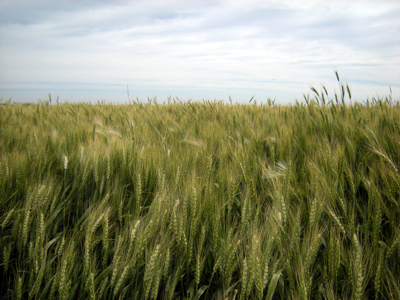
Perennial grain crops are on the horizon according to a researcher at the University of Manitoba.
Doug Cattani is one of the scientists working on introducing a perennial trait to crops such as wheat, rye, flax and sunflowers.
"It would be just like any other perennial crop that we grow. We grow hay and we grow alfalfa, and we harvest it every year," says Cattani. "It will simply be like growing any other grain crop."
In this cropping system, Cattani says farmers would seed the crop once, and then harvest it for five or six years.
"So you will save energy in that respect," he explains, noting perennial grains would maximize the growing season available to Manitoba farmers. "Instead of having a 90 to 120 day growing season, depending on what crop you're growing, it will be from as soon as things warm up in spring til it hardens off in the fall."
Cattani says perennial crops would also have benefits related to drought and flooding.
"The perennial crop, because it will begin growth earlier in spring, will be less subject to damage due to excessive moisture in spring," he says. "A lot of these crops have very deep root systems and as the roots die off, they allow for little channels for water infiltrating deeper into the soil, so you should also have better infiltration."
Other benefits associated with perennial crops include increased carbon sequestration, reduced input costs and improved soil fertility.
"Having the crop growing longer in the year and allowing the plant to remain in the soil without tillage allows for build up of carbon in the soil, so returning organic matter to the soil - much like what would have been under the original prairie before it was broken by settlers," he says.
Perennial crops would likely come with some yield drag.
"I would imagine our yields will be lower than what you're seeing in an annual grain, but also your input costs should be lower as well," explains Cattani. "We've had over a hundred years of breeding here on the prairies of our annual crops to adapt them to our environment. So it will take a while to get up to that point."
Manitoba is the first province to conduct this type of research. Funding is coming from the federal and provincial governments through Growing Forward.
"I think perennial crops fit well into the resource set of our producers and into the concern that a lot of people have with the depletion of the soil," says Cattani.
~ Thursday, December 2, 2010 ~



